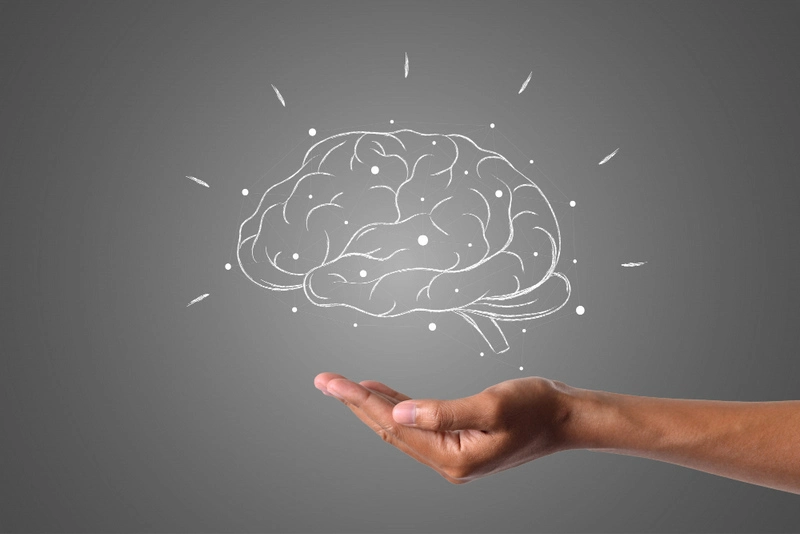This article will explore the pros and cons of Deep Transcranial Magnetic Stimulation (Deep TMS) therapy. While there are several benefits, there are also potential challenges, so it is essential to compare it to other treatments so that you can make informed decisions about your mental health treatment options.
Announcement: Deep TMS therapy differs from other forms of TMS, like regular TMS, in that it stimulates a deeper and wider region of the brain. Sessions require unique, deep TMS coils.
Our deep TMS induces an electric field in the brain, stimulating neurons. Normally, the intensity of the magnetic field around your brain decreases from the scalp downward. This means the magnetic impulses lose their efficiency as they go deeper into your brain and connect with deeper neurons.
However, our unique coil has a slow rate of decay which lets us achieve deeper penetration, which means more neurons are targeted. We target neurons deeper in the brain fold that are parallel to the electric field so they are more receptive to stimulation.

Deep TMS therapy can be used to treat:
With our deep TMS therapy, your session lengths, frequency, and what happens during your sessions remain the same as any other TMS treatment. Still, you are more likely to achieve greater results because of the broader and deeper targeted brain regions.
Pros of Deep TMS Treatment
There are several benefits to using deep TMS therapy.
Non-invasiveness and safety of Deep TMS
Deep TMS treatment is a non-invasive form of therapy. It uses a magnetic coil to send magnetic impulses into the brain. Your skin is not penetrated, and you don’t require surgery. It’s a simple outpatient procedure where all you have to do is sit in a chair.
Ability to reach deeper brain regions
During a session, we can, directly and indirectly, stimulate the medial and lateral prefrontal cortex structures with magnetic impulses. Moreover, our magnetic impulses not only penetrate deeper but are applied to a wider area, meaning we are more likely to hit the affected parts of our brain.
In each person, the parts of the brain that need to be targeted can be located in different places, and they can be difficult to reach. But with the broader target area, you will achieve better results from each session.
Effectiveness for treatment-resistant conditions
With other forms of depression treatment involving the brain, like electrical stimulation, there are risks and side effects, particularly damage to unintended parts of the brain that can cause memory loss or a failure to connect with the target area.
TMS is different. With the unique patented coil used for our TMS, we can target a much broader area. The target regions are not always in the same place and can vary dramatically from one individual to the next. Where other treatments might fall to the left or right of the target area, your sessions are more likely to stimulate the necessary prefrontal cortex structures.

Lesser reliance on medications
The parts of the brain we target are connected to the reward system and mood disorders like depression. In many cases, those parts of the brain have not received the necessary blood flow to function correctly and send the correct electrical signals. By stimulating this area with magnetic pulses, we can encourage blood flow to the region, bringing the area back to its normal function.
Our treatment really works:
- ⅓ of medication-resistant patients achieved remission
- ¾ of patients received a significant clinical response
These results indicate that clients can enjoy a lesser reliance on medication after deep TMS therapy. And those clients who are resistant to medication and struggle to find other alternatives can see decreases in their symptoms after deep TMS.
The convenience of outpatient treatment
This form of treatment is an outpatient treatment, and sessions are generally short, which means you don’t have to do anything to prepare for your sessions, and you can safely get yourself home after your sessions.
Cons of deep tms
There are some cons associated with deep TMS treatment.
Cost
Firstly is the cost. Given that this is a relatively new form of treatment offered by a few clinics, it may or may not be covered under insurance policies, and, more importantly, it is simply more expensive than traditional psychotherapy.
Time Commitment
Similarly, it requires a much lengthier time commitment. Most people have to commit to several sessions, one every day of the week, over the span of a few months. In some extreme cases, as this is most effective as an acute form of treatment, individuals with severe Catatonia or similar depressive disorders might need regular deep TMS therapy a few times per year or every other year.
Side Effects
Deep TMS treatment is not without its side effects. Thankfully these side effects are generally mild, and they can improve after regular sessions. some of the most common side effects include:
- Lightheadedness
- Discomfort on the scalp
- Tingling or twitching of the facial muscles
- Headaches

Individual Response
Each person responds differently. The area of the brain that needs to be targeted can also be in a different location for each client. As such, there is a risk that deep TMS therapy may not provide an immediate or long-term solution, but it can still be more effective when combined with other treatments.
Limited Availability
Existing studies have confirmed there is potential for deep TMS treatment, especially in those patients who need ongoing treatment. However, there is still a wide range of research required to confirm the efficacy of deep TMS therapy as an individual treatment to replace other forms of therapy and medication.
Summary
So, what is deep TMS therapy? It is a form of effective treatment for severe depression, OCD, and PTSD. There are pros and cons to using this treatment. You should consult with a healthcare professional for personalized insights into whether it is a form of treatment you should consider.